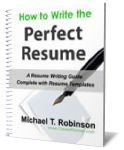"Geologist"
Job Description - Part 1 - Duties and Tasks
Basic Job Description:
Study composition, structure, and history of the earth's crust; examine rocks, minerals, and fossil remains to identify and determine the sequence of processes affecting the development of the earth; apply knowledge of chemistry, physics, biology, and mathematics to explain these phenomena and to help locate mineral and petroleum deposits and underground water resources; prepare geologic reports and maps; and interpret research data to recommend further action for study.
Part 1
Duties / Tasks
Part 2
Activities
Part 3
Skills
Part 4
Abilities
Part 5
Knowledge
Job Duties and Tasks for: "Geologist"
1) Communicate geological findings by writing research papers, participating in conferences, and/or teaching geological science at universities.
2) Measure characteristics of the Earth, such as gravity and magnetic fields, using equipment such as seismographs, gravimeters, torsion balances, and magnetometers.
3) Test industrial diamonds and abrasives, soil, or rocks in order to determine their geological characteristics, using optical, x-ray, heat, acid, and precision instruments.
4) Identify deposits of construction materials, and assess the materials' characteristics and suitability for use as concrete aggregates, road fill, or in other applications.
5) Develop applied software for the analysis and interpretation of geological data.
6) Analyze and interpret geological, geochemical, and geophysical information from sources such as survey data, well logs, boreholes, and aerial photos.
7) Plan and conduct geological, geochemical, and geophysical field studies and surveys; sample collection; and drilling and testing programs used to collect data for research and/or application.
8) Investigate the composition, structure, and history of the Earth's crust through the collection, examination, measurement, and classification of soils, minerals, rocks, and fossil remains.
| Thanks for visiting CareerPlanner.com | ||

|
1) Use Career Testing to find the perfect career 2) Is your resume getting you enough interviews? |
 |

|
Thanks for visiting CareerPlanner.com 1) Use Career Testing to find the perfect career 2) Is your resume getting you enough interviews? |
 |
9) Prepare geological maps, cross-sectional diagrams, charts, and reports concerning mineral extraction, land use, and resource management, using results of field work and laboratory research.
10) Locate and estimate probable natural gas, oil, and mineral ore deposits and underground water resources, using aerial photographs, charts, and research and survey results.
11) Assess ground and surface water movement in order to provide advice regarding issues such as waste management, route and site selection, and the restoration of contaminated sites.
Is being a "Geologist" your very best career choice?
Our Career Interest Test will show you which careers match your interests.
Our Free Personality Test will show you which careers match your personality and why.
12) Identify risks for natural disasters such as mud slides, earthquakes, and volcanic eruptions, and provide advice on ways in which potential damage can be mitigated.
13) Conduct geological and geophysical studies to provide information for use in regional development, site selection, and the development of public works projects.
14) Inspect construction projects in order to analyze engineering problems, applying geological knowledge and using test equipment and drilling machinery.
15) Advise construction firms and government agencies on dam and road construction, foundation design, and land use and resource management.
Job Description for "Geologist" continued here...
Part 1
Duties / Tasks
Part 2
Activities
Part 3
Skills
Part 4
Abilities
Part 5
Knowledge
"Geologist" Holland / RIASEC Career Code: I-R-C SOC: 19-2042.01
Click here for "Geologist" Jobs
See the Future Outlook and Educational Requirements for "Geologist"
Our Most Popular Career Planning Tools







